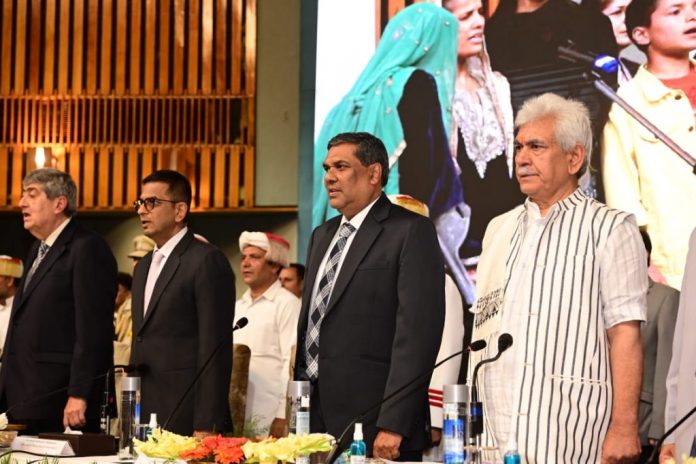DM Monitoring
NEW DELHI: In this Modi-yug (era), where Hindutva Brahmanical majoritarianism is subverting the Indian constitution by reinterpretation and distortion, the unanimous verdict of the Supreme Court’s constitutional bench upholding the abrogation of Article 370 and the convoluted logic it offers to justify its concurrence with the political acts of Modi should be a matter of great concern to people who care about India’s future as a secular, democratic and federal republic.
And if the similarity of the judicial logic and other self contradictory judicial premises that the top court offered in the Ayodhya judgement – another political agenda central to the Hindutva right – is considered, the questions become more fundamental.
Both the Supreme Court benches that adjudicated the Article 370 case and the Babri Masjid case were constitutional benches of five judges led by the Chief Justice of India (CJI), then and now. The rest of the bench in both the cases consisted of the senior most in the apex court who were in line to become CJIs except for Justice N.V. Ramana in the Babri Masjid dispute. Both the cases were of utmost importance to the ideological project of Hindu Rashtra (nation) of the present regime.
In both the cases, the Hindutva forces had achieved their goals partially and in a de-facto manner, the judicial verdicts gave them a final and a de jure closure in their favour. Through these verdicts, the apex court normalised the most abnormal and constitutionalised the most unconstitutional while providing judicial legitimacy to the idea of a Hindu Rashtra. Since, in both the cases, the bench constituted the cream of the Indian judiciary and the verdict was unanimous, their judgements cannot be considered either as an aberration or exceptional.
In fact the CJI, in an interview to PTI has said that in the Ayodhya case, the anonymity and unanimity of the judgement was conscious so that a strong message of complete judicial concurrence in the rationale and the judgement is conveyed.
Hence the critique of these judgements should also raise some very fundamental questions pertaining to the character and direction the Indian jurisprudence is heading towards. In fact, a closer analysis of both the judgements indicates the dangerous emergence of a majoritarian jurisprudence in direct proportion with the majoritarian polity ruling the country.
Take, for example, the judgement on abrogation of Article 370 and bifurcation of the erstwhile state of Jammu and Kashmir.
Article 370 was a manifest instrument of guarantee of the autonomy and limited sovereignty of the state of Jammu and Kashmir, assured by the Indian constitution, even after its accession to Indian republic.
While the erstwhile governments, including the Congress, had been betraying the guarantee surreptitiously, the Bharatiya Janata Party (BJP) and its previous avatar, the Jan Sangh, wanted a blatant, forcible and complete integration of the predominantly a Muslim state into Indian Union.
Thus, after the Modi government came to power for the second time in 2019, on a Hindu Rashtra agenda, it abrogated Article 370 through presidential orders. The question before the constitutional bench was the illegality, irrationality, procedural impropriety and constitutional immorality involved in the Modi government’s act.




